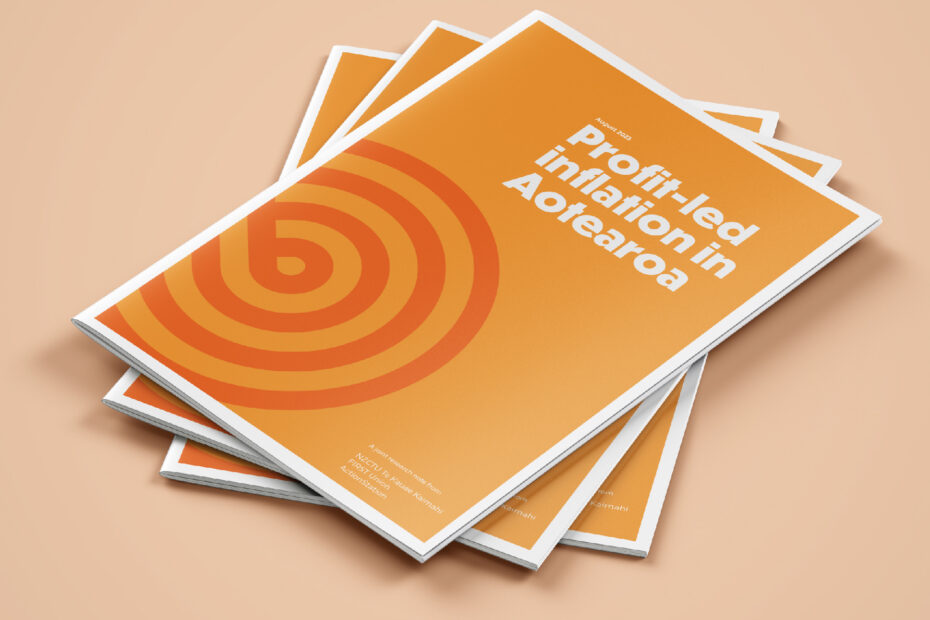JOIN MEDIA RELEASE: FIRST Union, NZCTU and ActionStation
A new report released today by FIRST Union, NZ Council of Trade Unions and Action Station argues that rising profits – not wages – have been the primary driver of domestic inflation during the cost-of-living crisis.
“This report reveals that from mid-2021 to the end of 2022, rising profits contributed more than half of domestic inflationary pressure, while labour costs accounted for less than a third”, said FIRST Union Researcher and Policy Analyst Edward Miller.
“Many communities that are enduring rising prices while businesses post record profits have reached the same conclusion. They know that they are also on the receiving end of an inflation policy response that disproportionately impacts the poor and vulnerable”, said Miller.
Profit-led inflation in Aotearoa uses the same methodology as reports by the OECD, European Central Bank and the Australia Institute to decompose the profit and labour contributions to domestic inflationary pressure. Sector- and firm-level data provide further insight into how rising profits have fed into prices, looking at food, transport and housing.
“Over the past year, inflation has been the grand excuse for anyone to wield at their disposal. It provides cover for business owners to push up prices while withholding wage rises. It has been sharpened as a weapon for political gain by parties wanting to shrink government and the public sector. All of this has distracted us from the big businesses driving inflation,” said Kassie Hartendorp, Director of ActionStation.
“While our communities have been struggling from rising prices for the basics, big business has been shamelessly profiting off customers’ misery. This report shows that our largest corporations have been driving inflation at a time when people are struggling the most. We need policies that will address the root of the problem and ease the pressure for all of us,” said Kassie Hartendorp.
“These findings should open new discussions about the appropriate policy responses for reducing inflationary pressures. We need to tackle inflation in both the short and the long-run, and to make sure that the costs of our inflation response are falling on those who have benefitted the most over the past few years”, said CTU Policy Director Craig Renney.
“In the long-term, inflation reduction requires investment in those things that will make a consistent difference. We need to tackle rents, energy and transport costs, and to make sure that Kiwis have access to high quality public services. Doing this will not only reduce inflation, it will create the more productive and sustainable future”.
